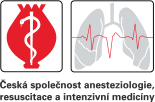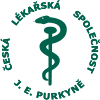Anest. intenziv. Med. 2008;19(1):66-68
Withholding and withdrawing therapy in the intensive care unit - the French approachIntensive Care Medicine
- KARIM 1. LF UK a VFN Praha, Ústav pro humanitní studia v lékařství 1. LF UK, Praha
Problems related to intensive care ethics have become an important issue during the last few years, in particular end-of-life decisions in the ICU, withholding and withdrawing therapy, and communication with family members. The present article is based on a translation of two documents mapping the development of the discussion and solving these issues in France. It concerns the official attitude of a professional society to the withdrawing of life sustaining therapy in 2002 and the legislative standard defining the patients' rights at the end of life in 2005.
In France, patients in an advanced or terminal stage of their disease are entitled to refuse any treatment including those keeping them alive. If the patients are incompetent to express their will, it is the attending physician's role to omit all treatment considered to be futile, inadequate and believed to lead only to the "artificial sustainment of life".
Keywords: withholding therapy; withdrawing therapy; ICU; ethics; communication
Published: February 1, 2008 Show citation
References
- Carlet, J., Thijs, L. G. et al. Challenges in end-of-life care in the ICU. Statement of the 5th International Consensus Conference in Critical Care: Brussels, Belgium, April 2003. Intensive Care Med., 2004, 30, p. 770-784. (dostupné na: www.srlf.org/Data/ModuleGestionDeContenu/application/577.pdf)
 Go to original source...
Go to original source...  Go to PubMed...
Go to PubMed... - Davidson, J. E., Powers, K. et al. Clinical practice guidelines for support of the family in the patient-centered intensive care unit: American College of Critical Care Medicine Task Force 2004-2005. Crit. Care Med., 2007, 35, p. 605-622.
 Go to original source...
Go to original source...  Go to PubMed...
Go to PubMed... - Lautrette, A., Darmon, M. et al. A Communication Strategy and Brochure for Relatives of Patients Dying in the ICU. N. Engl. J. Med., 2007, 356, p. 469-678. (free fulltext na www.nejm.org)
 Go to original source...
Go to original source...  Go to PubMed...
Go to PubMed... - Les limitations et arrets de therapeutique(s) active(s) en reanimation adulte Doporučení SRLF, ke stažení na www.srlf.org/download/recom.LATA.pdf.
- Recommendations de bonnes pratiques cliniques concernant l'application de la loi N.2005-370 du 22 avril 2005 relative aux droits des malades et a la fin de vie. Dokument ke stažení na www.sfar.org/s/IMG/pdf/recosfdv0606.pdf
- Jan Pavel II. Evangelium vitae "O životě, který je nedotknutelné dobro", encyklika z 25.3. 1995, Zvon, České katolické nakladatelství : Praha, 1995.





